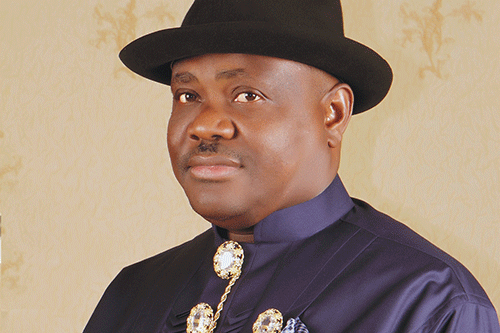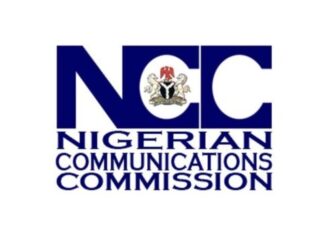Assistant Editor (South South), JOE EZUMA, reports on activities of the Nyesom Wike-led administration that tend to shift the paradigm in Rivers State governance.
Although there was the debate on the propriety of celebrating first 100 days in office by Nigeria’s elected officials, especially governors and president in the current dispensation, many governors were able to show that they had focus and were ready to make the difference in the governance of their states within the period.

Such governors had, through their first steps, exhibited willingness to improve the situation they met on the ground on assumption to office. Supporters of Rivers State governor, Nyesom Wike, count him among these. According to them, the governor has not only kept to his words of completing some vital projects abandoned by his predecessor, but had re-designed leadership by getting to the hearts of the people through some initiatives by his administration.
Sleeves rolled
Shortly after his inauguration on May 29, 2015, Wike told journalists that he would strive to complete projects left by the former governor, Chibuike Amaechi, which were relevant to the people.
Such projects included some roads and bridges, outstanding workers’ salaries and pensions, unpaid school fees of Rivers indigenes in institutions abroad who had been ejected by their various institutions, reinstatement of the Rivers State University of Science Technology (RSUST) lecturers sacked by Amaechi and payment of their over one year salaries withheld by the institution.
The governor also tactically avoided white elephant projects, including the controversial mono-rail project started by Amaechi, and focused on pursuing policies and projects that touch the heart of the people.
The emphasis of the administration, from inception, was on the provision of basic things of life like shelter (affordable housing), light, water, food, completion of economically-relevant projects such as roads, bridges and power. For instance, the governor had promised to see to the completion of the lingering Trans-Kalabari Road and bridges that had been stalled from the period of Governors Peter Odili, Celestine Omehia to Amaechi.
Trans-Kalabri Road was envisioned to link the many fishing, farming and oil-bearing communities whose efforts in production do not attract commensurate reward due to absence of outlet to take the products to metropolitan markets.
Consequently, life, it has been argued, has remained at its lowest form in those communities. The road, it is expected, will therefore open the communities to faster development, improve the lives of the people of the state generally, as it would rub off on the overall economic potential of the state.
The Deputy Governor, Dr. (Mrs.) Ipalibo Banigo, alluded to this while explaining the policy pronouncements that underline the thrusts and steps she said has marked out the administration as one that is focused and proactive in fixing the state.
“This government is resolved not only to make Rivers State the investors’ haven, but also to develop the youths to realise their full potential as future leaders,” she had declared.
Apparently in driving the idea, Wike got multi-national companies in the state to buy into the agenda – a feat that was demonstrated in the reconstruction of the Eleme Refinery Road that had constituted a huge shame on the country’s development profile. The road leads to one of the country’s major refineries.
The government, TheNiche gathered, has been involved in other engagements seen to have impacted on the people in various ways. One of the outfits the governor scrapped and earned state-wide applause was the Rivers State Traffic Management Authority (TIMA-RIV). The activities of the agency as well as the State Urban Renewal Authority Task Force on Environmental Sanitation and other task forces had been considered highly repressive and had raised concern to residents of the state.
The government has also set up judicial commission of inquiry to probe the last 18 months of Amaechi’s administration, and look into the sale of strategic industries and properties of the state.
It has equally effected repairs of dilapidated streets and roads in Port Harcourt, the capital city, as well as fixing potholes, most of which were less than 500 metres from the Government House.
War of words
Efforts by the administration to complete the projects inherited from its predecessor have however come with criticism from its opponents, especially the state chapter of All Progressives Congress (APC), which sniggered that all that the governor had been doing was to complete on-going projects initiated by Amaechi.
Wike had, however, retorted that “the projects initiated by the past administration would be completed, provided they have positive and direct impact on the people of Rivers. The important thing is to finish a project. Starting a project and abandoning it is a waste of public funds.”
He roundly criticised the Amaechi administration for spending eight years initiating projects that were not completed.
He described the Nkpogu Road/Bridge as an old project, pointing out that it was abandoned by the contractor, because the state government under Amaechi owed the firm the sum of N500 million.
According to the governor, the road was strategic because it would greatly decongest traffic in the city when completed. Wike also remarked that the Peter Odili-Woji Road would ease traffic, because motorists will be able to avoid routes like the East/West Road and Aba Road to access Onne.
Our reporter further gathered that the governor had directed the Rivers State Waste Management Agency (RIWAMA) to raise a proposal on how the cleanliness of the Abali Motor Park, which had roads around it tarred, and other tourist points should be maintained; so that they will not be mismanaged, damaged, or turned into refuse dumps by residents.
It was also learnt that Wike had boosted the state police command’s efforts at crime fighting by supporting them with vehicles and other material supports, a situation which had resulted in phenomenal decrease in armed robbery and kidnapping in the state.
Knocks
But even as the administration earns applause across the state on account of its interventions, it also receives knocks from critics who feel that some of its actions, especially the ones targeted at correcting the perceived mistakes of the former government, were exuberant, vengeful and punitive.
Wokoma Dike, a Port Harcourt resident, for instance, told our reporter that what Wike is offering cannot be classified as governance but mere window-dressing and outright vengeance against his predecessor.
“He was part of the previous administration. He was Chief of Staff to Amaechi. It was from being part of the system that he was recommended for appointment as a minister. While he was with Amaechi, some of those initiatives were already on and he did not oppose them. Why is it now that he is seeing them as not being in the interest of the people? Rivers State residents and indigenes are too civilised to be carried away by these window-dressing activities and outright vengeance against Amaechi,” he fumed.
Wike has, however, remained undaunted, or so it seems.














